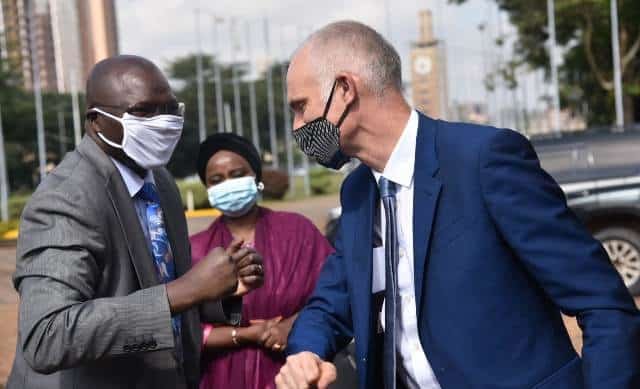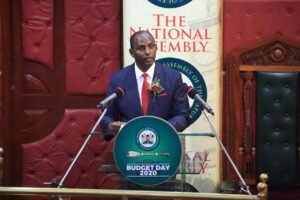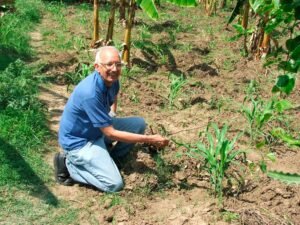By Rootooba Correspondent ,June 13, 2020
The European Union has committed Ksh 600 million (Euro 5 million) to support 80,000 food insecure Kenyans in the informal settlement in Nairobi to help them fight the impacts of COVID 19.
According to a rapid food assessment conducted in April by a consortium of NGOs, almost three months after Kenya declared its first confirmed COVID-19 infection, an estimated 30 percent of Kenyans living in Nairobi informal settlements have been experiencing severe hunger.
The households, dependent upon a daily wage, are likely to bear the economic burden of the pandemic. Only one in four homes in Nairobi’s informal settlements had stable income earnings, the study found.
The EU grant will provide 20,000 households living in the Kibera, Korogocho, Mathare, Soweto, Majengo, Gitare, Marigo, Gatina, Lunga Lunga, Kayole and Mukuru informal settlements of Nairobi with monthly cash transfers for three months, beginning in June.
The EU is contributing Ksh 35 billion to Kenya’s response to COVID-19. At the same time, EU Member States have already provided more than Ksh 3.3 billion (EUR 30 million), European Union Ambassador to Kenya, Simon Mordue says.
“The EU is standing with Kenya during this difficult time, providing a lifeline through cash transfers for the worst affected people in Nairobi’s urban informal settlements, including women, the elderly, and persons with disabilities,” he noted.
The cash transfer through mobile money will complement the Ministry of Labor’s Inua Jamii program, with 11,250 households receiving KES 5,668 per month.
A further 8,750 households, identified through the Nyumba Kumi system and independently verified by the Kenya Red Cross Society, will receive KES 7,668 per month.
Labor and Social Protection Cabinet Secretary Simon Chelugui said the funds would go a long way in increasing the purchasing power of vulnerable groups in the country and injecting more liquidity in the economy.
“In a bid to cushion vulnerable Kenyans against the adverse effects of the covid 19, the government disbursed 7.8 billion shillings under the cash transfer program; the fund needs an allocation of more than 5 billion shillings during this year’s budget for efficiency and to expand to more than the current 21 counties”, he said.
“In addition to increasing the money circulation in the economy, the government seeks to amend the social security act to streamline operations in the cash transfer program to make it more efficient”. Chelugui said.
According to 47 year-old Priscilla Ngilla, a mother taking care of two children in Kibera, “It has helped me a lot, I even thank God for that. Because…this house, if you hadn’t sent me that money, I wouldn’t be here. I would have been chased away. But thanks to what you gave us I was able to divide it a little and pay for the house, and a debt I had nearby to pay for food.” Ngilla benefited from a new pilot cash transfer program supporting 6,016 people living in Kibera through an initiative that has recently ended—providing grants worth an average of KES 5654.5 (€46.74) per household.
Another beneficiary from Kibera Robina Kwamboko who is 60 years old and is taking care of four children said, “The lockdown has affected me a lot because we have no money. There is no business. I used to get 100-200 per day. These days I get nothing.”
The project will improve food security, covering 50 percent of recipients’ food needs, and other essential costs such as soap, water, rent, and mobile phone credit.







